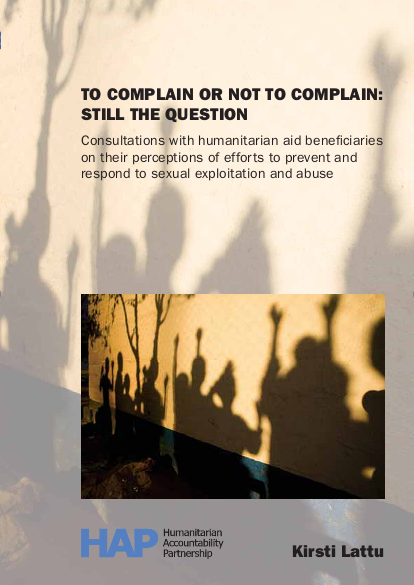
It has been more than four years since discoveries of pervasive misconduct and the subsequent release of the UN Secretary-General’s Bulletin catalysed humanitarian organisations to re- evaluate their capacities for preventing and responding to sexual exploitation and abuse. In order to envision global prevention and response strategies, there was a close examination of current practices which exposed weak or nonexistent codes of conduct, poor awareness of rights and duties, nonexistent or confusing complaints mechanisms and few (if any) on-staff investigators. Now, the consultations that are the subject of this report underscore that our global expectations of how long meaningful change would take, how much it would cost and what would be involved were unrealistic.
